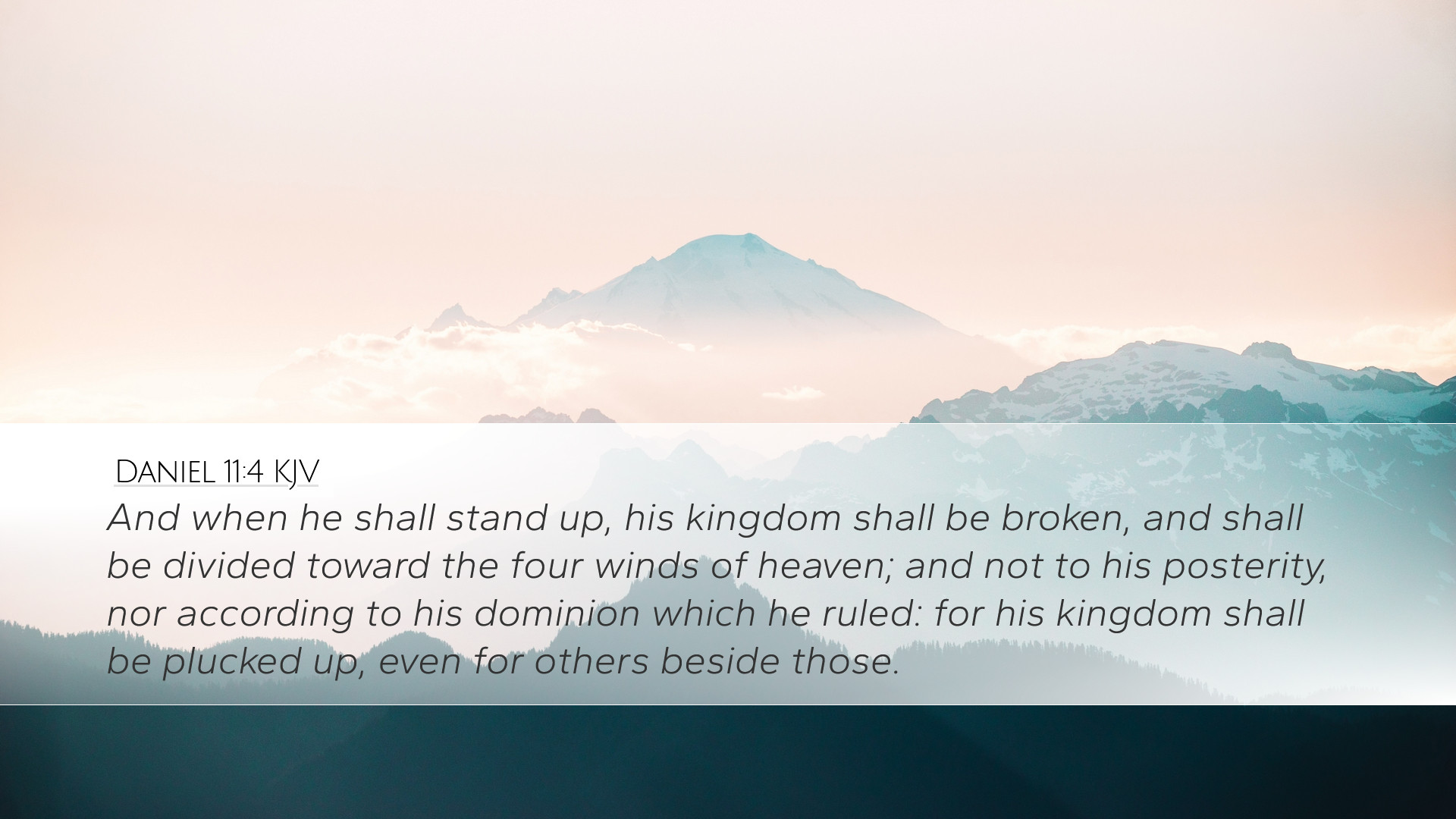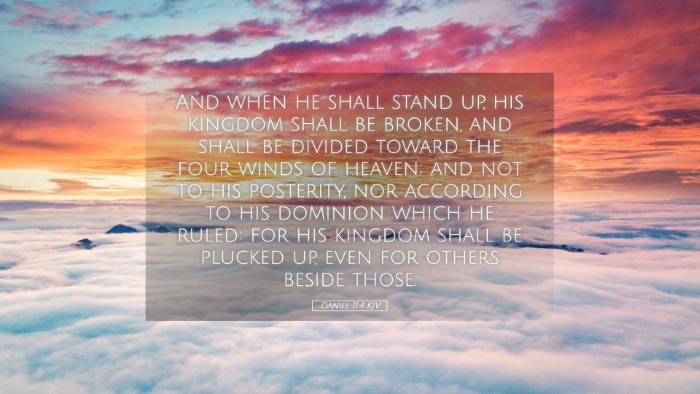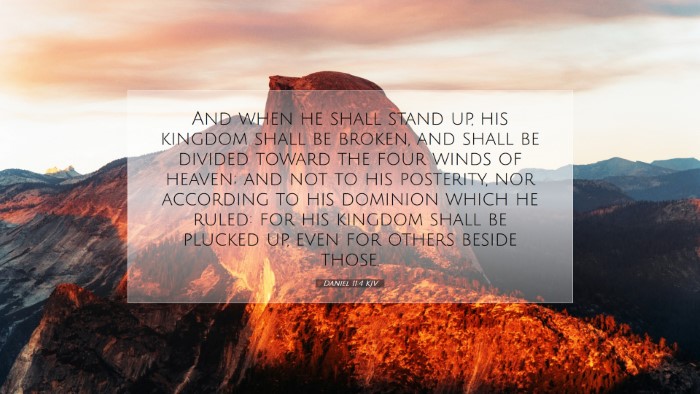Bible Commentary on Daniel 11:4
“And when he shall stand up, his kingdom shall be broken, and shall be divided toward the four winds of heaven; and not to his posterity, nor according to his dominion which he ruled: for his kingdom shall be plucked up, even for others beside those.” - Daniel 11:4 (KJV)
Overview of the Passage
This verse is crucial in the prophetic narrative of Daniel, foreseeing the geopolitical shifts following the reign of a prominent ruler, potentially Alexander the Great. It indicates the fracturing of a great empire into smaller kingdoms, affecting both his successors and the future of the nations.
Key Insights from Commentaries
Matthew Henry's Commentary
Matthew Henry provides a comprehensive look at this passage. He notes that the verse expresses a pivotal moment in history where a great leader's death leads to instability. Upon the rise of this king, the prophecy affirms that his kingdom would not withstand the test of time. Henry emphasizes:
- The transitory nature of earthly kingdoms: He cites the example of Alexander the Great, whose empire, though vast, divided among four of his generals after his death, reflecting the fragility of human accomplishments.
- The divine providence: Henry insists that this occurrence is not mere chance; it is part of God's sovereign plan for nations and empires, fulfilling the prophecy laid out by Daniel.
- The loss of legacy: Notably, he points out that the kingdom is not passed on to Alexander's direct heirs, illustrating how success is often fleeting and not guaranteed to the next generation.
Albert Barnes' Notes
Albert Barnes expands upon the interpretation by providing historical context. He writes:
- The divisions of Alexander's empire paved the way for the rise of four distinct kingdoms: Cassander in Macedon, Lysimachus in Thrace, Seleucus in the East, and Ptolemy in Egypt. Each of these would have significant implications for future prophetic events, notably their interactions with Israel.
- Barnes frequently reiterates the theme of divine election: He posits that God uses earthly rulers as instruments, emphasizing that He controls the rise and fall of nations.
- The notion of kingdoms being “plucked up” suggests a dramatic and sometimes violent change in governance, highlighting the idea that human power is ultimately subject to divine will.
Adam Clarke's Commentary
Adam Clarke offers a detailed breakdown of the implications of this prophecy, including:
- He provides a critical look into how the four winds metaphorically represent the various directions of the kingdoms that emerged from Alexander's empire, portraying the widespread distribution of power and influence.
- Clarke also emphasizes the importance of historical fulfillment: He supports his analysis with references to historical texts, outlining how these events transpired in real-time, connected closely with the prophetic words delivered by Daniel.
- A significant point he makes is on the impact of such divisions on God’s people: Often, such turmoil among nations would lead to trials and tribulations for the Jewish people, foreshadowing the challenges faced during the intertestamental period.
Theological Implications
From the commentaries, several theological implications arise:
- The sovereignty of God: The fracture of Alexander’s kingdom supports the understanding of God’s ultimate authority over world empires.
- Human limitations are highlighted: The verse teaches that no matter how powerful a ruler may seem, mortality and division are inevitable aspects of human governance.
- The hope in divine providence: Even in chaotic political climates, believers can find reassurance in the knowledge that God is orchestrating events according to His divine plan.
Application for Pastors and Theologians
This passage has significant implications for pastoral teaching and theological reflection:
- Understanding History: Encourage congregations to see God's hand in historical events, affirming that He establishes and removes leaders according to His purpose.
- Encouragement during Trials: During periods of uncertainty, this passage can serve to remind believers that God remains in control amid division and turmoil.
- Preaching Sovereignty: Pastors can preach about God's sovereignty as a source of comfort, focusing on how past upheavals eventually led to His redemptive purposes.
Conclusion
Daniel 11:4 serves as both a historical reflection and a theological affirmation. Through insights gathered from esteemed commentaries, this verse teaches us about the fleeting nature of human kingdoms, the reality of divine sovereignty, and the importance of maintaining faith amidst worldly chaos. It reminds us that God’s plans transcend human efforts, and His ultimate authority guides the course of history.


